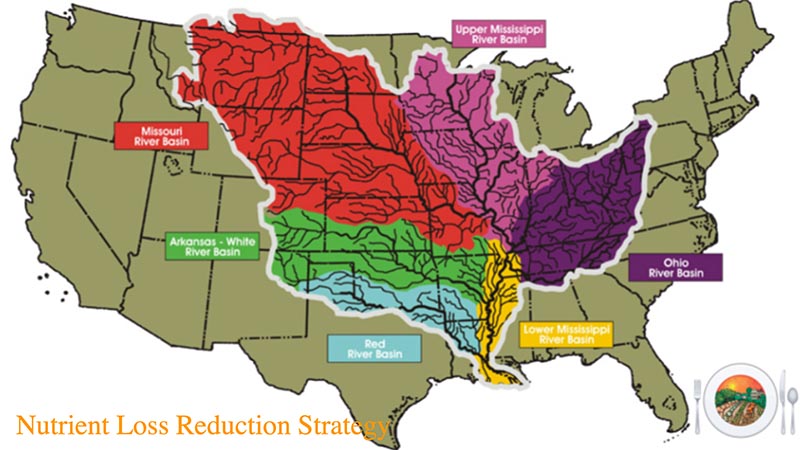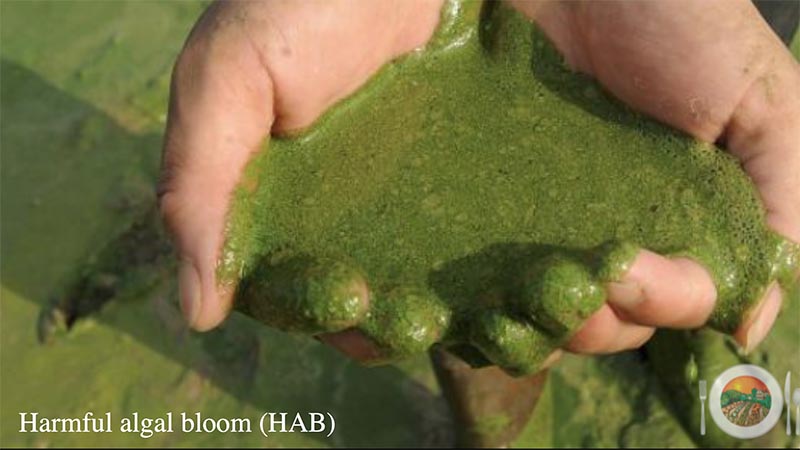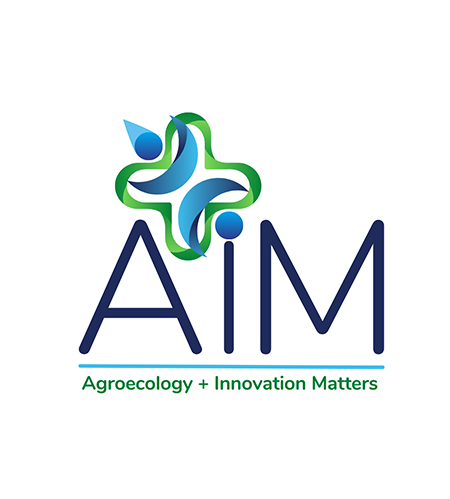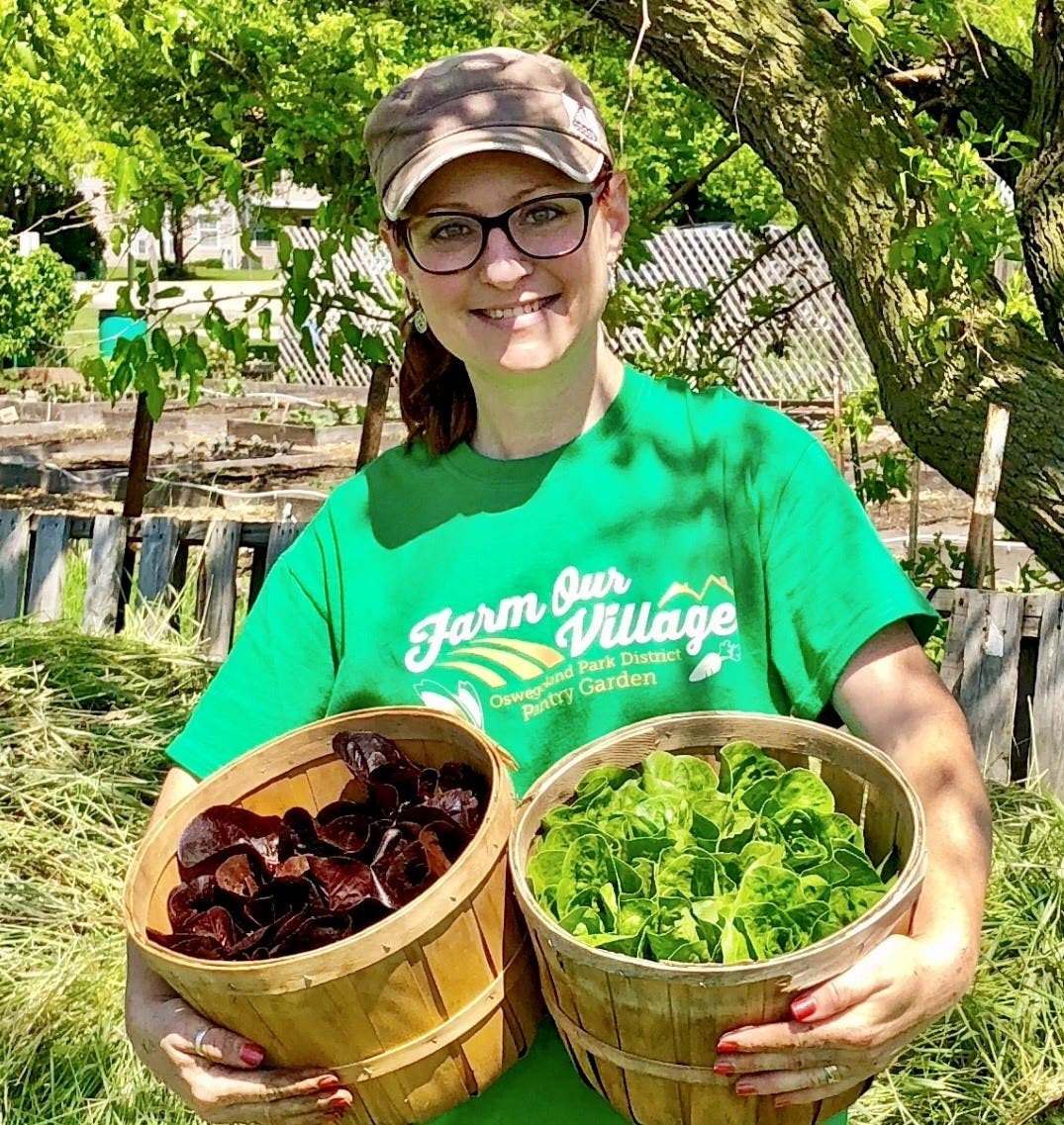Agroecology educator Connie Kollmeyer of The Conservation Foundation.
Suburbanites tend to think of agriculture as something that’s “far away”—vast fields in rural areas. Or the “urban agriculture” phenomenon—vegetable patches popping up on vacant city lots.
“I like the term community-centered agriculture,” says Connie Kollmeyer. “Community-centered agriculture means crops can be grown anywhere that people live.”
Kollmeyer was speaking at Agroecology and Community-Centered Ag: the 18th Annual DuPage Environmental Summit (watch on Zoom recording) organized by The Conservation Foundation (TCF).
TCF is a west suburban Chicago land trust whose staff of 32 operate one of Northeast Illinois’ leading agroecology learning hub, educational centers, and an organic farm. The nonprofit’s 60-acre, easement-protected farm is surrounded by large single-family Naperville houses and located 28 miles southwest of Chicago’s Millennium Park.
Back in 2020
Kollmeyer began tying her food-growing and education experience to TCF’s environmental curriculum in 2020. The curriculum has morphed to agroecology as TCF also was morphing into something new. (In 2018, TCF established the Green Earth Harvest organic vegetable farming program, following a merger with an organization that had been leasing the farmland.)
Kollmeyer’s ongoing conversations with her new colleagues pushed agroecology as a tool to implement the land trust’s goals. It soon became the theme for last month’s summit.
Connie’s Back Story
A native of west suburban Downers Grove, Kollmeyer went to college with plans to teach English or Social Studies. She switched to Accounting and started a career in business, with gardening as a hobby. Growing food and flowers for family eventually turned into a career.
She is certified in permaculture design for bioregional herbalism and edible wild plants. A master naturalist and master urban farmer, she then studied Regenerative Organic Agriculture. Volunteering stints include Gardenworks Project, Oswegoland Park District Pantry Garden, and Downers Legacy Seed Library.
“I grew up around gardening, with my parents and grandparents. Twenty-eight years ago, when my daughter was born, I started my own garden. My garden got bigger and bigger each year. I got this thought in my head that I’d start farming ‘once I have a few acres.’ Then I realized I have no idea when that’s going to be. So I took a cue from urban farmers: Work with what I have. My house in Yorkville was on one-third of an acre. My parents have three-quarters of an acre in Downers Grove. Pretty soon I was growing vegetables on the two locations and supplying a booth at a nearby farmer’s market.”
Lot of conversations
Her conversations with people at the market and through her volunteer work led to requests for presentations to organizations, clubs, and libraries, and as a guest speaker for local foods and sustainability classes at Joliet Junior College.
“As I started doing more of these programs, I found that I was spending a lot of time explaining that farming and gardening can be done naturally and that these spaces are part of nature and our local ecology,” she said.
Her journey led to “permaculture design” – which applies a philosophy of natural farming systems to the creation of landscapes that provide food, fiber, and/or energy at the neighborhood scale. “I began to blend the good things about permaculture with agroecology,” she explains. “It’s much more organized than permaculture, and brings in research, science and other knowledge sources.”
Follow the work of The Conservation Foundation via their webpage, social media and YouTube videos. Connie Kollmeyer will also speak at the Association of Illinois Soil and Water Conservation District annual meeting, July 2024 in Springfield. Visit their webpage and sign up for the AISWCD weekly newsletter for updates.
Story by Bob Heuer—director of HNA Networks, an Evanston-based consultancy that helps organizations navigate the intersection of food, farming, and regional economies.


Get stories like this in your mailbox by subscribing to the AIM newsletter.

